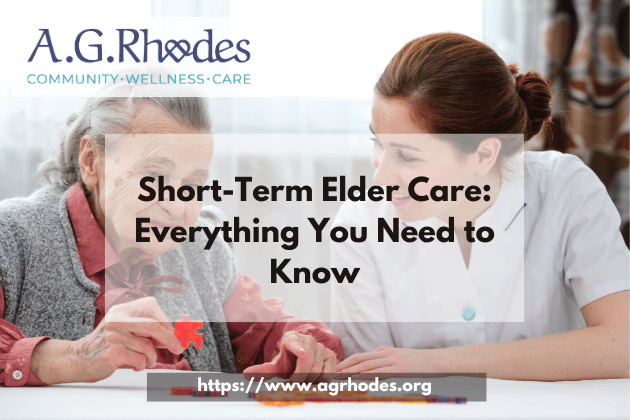Caring for an elderly loved one can be a challenging but rewarding experience. If you’re in the middle of planning for short-term elder care, you may have a lot of questions. When is the right time to start planning? What are my different care options? How much will this cost? Here’s a resource to help you answer all of those questions and more.
When should you start planning for short-term elder care?
The best time to start thinking about short-term elder care is before it’s needed. That way, you’ll have time to research your options and make the best decision for your family. It’s also a good idea to have a plan in place in case of an emergency.
What are the different types of care that are available?
There are many different types of care available for elderly loved ones. Some common options include home health aides, nursing homes, assisted living facilities, and hospice care. The type of care that’s right for your loved one will depend on their individual needs and preferences.
What is the cost of short-term elder care?
The cost of short-term elder care can vary depending on the type of care that’s needed and where you live. In general, home health aides or nurses will be less expensive than putting your loved one in a nursing home or assisted living facility. However, it’s important to consider all factors when making your decision, not just cost.
How do you choose the right type of care for your loved one?
Again, the best way to choose the right type of care is to discuss all options with your loved one ahead of time if possible. Consider their specific needs and preferences, as well as your budget. Other factors like distance from family members and whether or not your loved one has pets may also come into play.
What are the benefits of using a home health facility?
There are many benefits to using a home health facility over other types of elder care providers. They can provide tailored care based on your loved one’s needs, they’re usually less expensive than nursing homes or assisted living facilities, and they offer families peace of mind knowing that their loved ones are being cared for by professionals in the comfort of their own homes.
How do you know when it’s time to transition from short-term to long-term care?
There isn’t necessarily a definitive answer to this question since every situation is different. However, some common signs that it might be time to consider long-term care include a sudden decline in health, a change in mental status, or an increase in medical needs. If you’re ever unsure, it’s always best to consult with a professional who can assess the situation and guide you on what to do next.
Short-term elder care can be a great option for families who need temporary assistance caring for an elderly loved one. It’s important to start planning early so that you have time to research all of your options and make the best decision for your family situation. There are many different types of short-term elder care available, so be sure to consider all factors when making your decision.
Factors to Consider When Short-term Elder Care Planning
There are four important factors to consider when short-term elder care planning: medical needs, medications, diet and nutrition, and physical activity. Medical needs include any chronic conditions that require regular medical care, such as diabetes or heart disease. Medications are an important part of managing chronic conditions. diet and nutrition are important for maintaining health and preventing disease. Physical activity helps to keep seniors healthy and active. When making short-term elder care plans, it is important to consider all of these factors to ensure that the senior receives the best possible care.
Type of Care Needed
The type of care needed will be determined by the severity of the injury or illness. For example, someone who has a broken bone will need different care than someone who has a cold. The location of the care is also important. Someone who needs surgery will need to go to a hospital, but someone who just needs a few stitches might be able to go to an urgent care center. The location of the care is often determined by the severity of the condition, but it can also be influenced by insurance coverage and other considerations. In any case, it is important to make sure that you receive the care you need from the appropriate provider.
Cost of Short-term Care
The cost of long-term care varies depending on the type and level of care required, as well as the geographic location. In general, however, the cost of short-term care is rising faster than the rate of inflation. According to a report by the AARP, the median annual cost of a private room in a nursing home is over $90,000, and the median annual cost of assisted living is over $48,000. The cost of home health care is also rising, with the median hourly rate for a home health aide now exceeding $20. These costs can be difficult to manage, particularly for those on a fixed income. Fortunately, there are many options available to help offset the cost of short-term care, including Medicaid and short-term care insurance.
If you’re looking for more information on short-term elder care investment planning, please contact us today. We can help you understand the options available to you and make sure that you’re making the best decision for your loved one’s future.


